The Hierarchy of Cuteness
Sylvanian Families, Richard Scarry and Unico
After a week spent dwelling on Sylvanian Families, I started to think a lot about cuteness, specifically about the hierarchy of cuteness.
Maslow’s Hierarchy of Needs is a motivational theory in psychology comprising a five-tier model of human needs. The idea is that needs lower down in the hierarchy must be satisfied before individuals can attend to higher needs:
The Hierarchy of Cuteness takes this same pyramid of needs, but makes it cute. It’s not a perfect science but it did make perfect sense to me, so with that in mind - let’s begin with our nearest and dearest:
Sylvanian Families Cuteness
Physiological and Safety Needs
Sylvanian families are felted and soft, and they have checked all the boxes for the first two tiers of need:
Shelter
Food
Employment
Health
Reproduction
But while they do have deeply gentle back stories (Otter Baby Girl “loves looking at fish”), their sense of belonging, status and self esteem all rests in the hands of the person playing with them.
I watched a brilliant docu-series on Apple a few years back called ‘Becoming You’ which chronicles the first five years of a persons life through the eyes of 100 children from around the world. In the episode ‘Making Friends’ a child goes to the zoo with two schoolmates and ends up saying something she regrets. Unable to remedy the situation in the moment, she goes home to play with her toys and through this solo play she can reenact the scenario, exploring how it could have gone differently, so that she feels better prepared next time. If you would like to adopt this practice in your own life may I suggest using this line up:
While ‘Becoming You’ offers a gorgeous example of how the Sylvanian Family universe can be one of intimacy and friendship, on their own they’re just incredibly well dressed reproduction machines. Which leads me to:
Richard Scarry Cuteness
Love, Belonging and Esteem
I’m sure it’s no surprise that Richard Scarry has a huge influence on my work. His sketch book pages are absolute heaven:
And his character designs are pitch perfect.
IMHO Richard Scarry is the natural evolution of Sylvanian Families on the Hierarchy of Cuteness (I realise R.S. predates S.V. but for the purposes of this post please abstain from the concept of linear time).
Richard Scarry’s Busy World practises:
Feelings of Accomplishment
Status
Friends
and Family
And they also answer to the age old question: What do people do all day?
Their lives are aspirational and all in all a pretty well rounded group.
Now, I would never want to suggest that Richard Scarry’s Busy Town is not the ultimate in enlightenment, but let’s sit for a moment in the idea that busyness might be a sign we are in need of something more:
Research shows that humans tend to do whatever it takes to keep busy, even if the activity feels meaningless to them. Dr Brené Brown from the University of Houston describes being “crazy busy” as a numbing strategy we use to avoid facing the truth of our lives.
And henceforth can elegantly move into the final hierarchy of cuteness:
Somewhere Out There Cuteness
Self Actualization
Here lies the cross section of cuteness and desire. Cuties who are searching for the answers to life’s big questions - bigger even than What do people do all day?
Cuteness so cute that it moves into the realm of the spiritual.
Also known as: Pooh Cuteness
Aside to mention the original Winnie the Pooh toys are on display at the New York Public Library at the moment:
Also also known as: Unico Cuteness
Sorry did you need to see another picture of Unico? Mmm, yes me too.
Unico is a baby unicorn with white fur, a pink mane, and cinnamon bun-shaped ears, and was born with the gift of making all living creatures lighthearted and happy. A Japanese manga series written and illustrated by Osamu Tezuka, it was serialized in Sanrio's shōjo manga magazine from November 1976 to March 1979.
In 1979, Unico made his animated debut in Kuroi Kumo Shiroi Hane, an ecologically-themed pilot which follows Unico as he meets a young girl named Chiko in Canada who is ill because of the pollution from a nearby factory, and becomes determined to save Chiko's life by destroying the factory in order to cure her.
The voice of a generation.
I want to hone in on the plot of the first movie, entitled Unico, released in Japan in 1981.
The story of the movie is thus:
Unico is a young unicorn who possesses a special ability to bring happiness to anyone near him. The story begins in ancient Greece with a young mortal girl named Psyche. She is the first friend to Unico, and is so beautiful that the goddess Venus becomes jealous. The goddess attributes Psyche's beauty to her happiness and decides to kidnap Unico. She calls upon the "West Wind" to take Unico through space and time, to the Hill of Oblivion where he will completely forget that Psyche ever existed.
The West Wind takes pity on Unico and declines to follow the gods' commands. The gods are furious when they learn of the West Wind's defiance, and send the Night Wind to capture Unico instead.
To protect Unico from the gods, the West Wind must continually transport the little unicorn. Whenever Unico makes friends and brings happiness to others, the gods are alerted to Unico's whereabouts, so the West Wind appears to take him away, yet he is unable to say goodbye to his new friends. Every time Unico is taken away, his memory is wiped and a new adventure begins.
Here is a clip of Unico comforting me after I finished watching the film.
Unico’s journey fits elegantly into the hierarchy of needs, beginning with Unico having nothing, then going on a journey where he makes friends and finds purpose and ultimately self actualizes into the most bloody gorgeous embodiment of what he is "meant" to do and "meant" to be:
So what can we learn from Unico about how to climb up the rungs of cuteness and go from Richard Scarry to Somewhere Out There. Let’s go back to the beginning.
When we meet Unico he has a family and a purpose and is fulfilled. Then he is torn from his mothers arms by the West Wind and taken to the Land of Mist. One of the first things we hear Unico utter is
“I’m Lonesome.”
On Maslow’s pyramid, loneliness is addressed in “Love and Belonging” - the third level of need: Unico needs to overcome his feelings of loneliness by nurturing his relationships.
Unico soon meets Beezle, the Devil of Solitude and capturer of my heart:
Beezle is also lonely, but afraid to admit it (relatable). I watched this clip last week and have been absent mindfully singing “lonely all my life, i’ve been alone for all my life” every day since.
What is so beautiful about Unico and Beezle’s friendship is that when they meet, they are both lonely, so they can understand that loneliness in the other.
One of my favourite quotes about loneliness is from Jonathan Safran Foer’s book Extremely Loud and Incredibly Close:
Mom told me, “It probably gets pretty lonely to be Grandma, don’t you think?” I told her, “It probably gets pretty lonely to be anyone.”
Everyone has known the raw pangs of loneliness, even if it’s just for a fleeting moment after your boyfriend goes to the shops, but in the book The Lonely City, Olivia Liang addresses one of the saddest facts about loneliness: that unless someone is lonely at the same time as you, you’re more likely to push them away then pull them closer:
an almost eerie affliction of the spirits, loneliness inhibits empathy because it induces in its wake a kind of self-protective amnesia, so that when a person is no longer lonely they struggle to remember what the condition is like. If they had earlier been lonely, they now have no access to the self that experienced the loneliness; furthermore they very likely prefer that things remain that way. In consequence they are likely to respond to those who are currently lonely with absence of understanding and perhaps irritation.
This is what’s so terrifying about being lonely: the instinctive sense that it is literally repulsive, inhibiting contact at just the moment contact is most required.
Otherwise known as the Casper the Friendly Ghost Paradox: a ghost so desperate to make friends, whose very existence scares away those he wishes to be friends with.
Olivia Liang says that the perpetuation of loneliness brought on by distancing oneself from others, inevitably leads to the lonely person experiencing the world in:
increasingly negative terms, and to both expect and remember instances of rudeness, rejection and abrasion, giving them greater weight and prominence than other, more benign or friendly interactions. This creates, of course, a vicious circle, in which the lonely person grows increasingly more isolated, suspicious and withdrawn.
The lonelier the person gets, the less adept they become at navigating social currents. Loneliness grows around them, like mould or fur, a prophylactic that inhibits contact, no matter how badly contact is desired.
Unfortunately, not this kind of fur:
Alan Watts has written very thoughtfully on the epidemic of human disconnection:
Certainly most people feel separate from everything that surrounds them. On the one hand there is myself, and on the other the rest of the universe. I am not rooted in the earth like a tree. I rattle around independently. I seem to be the center of everything and yet cut off and alone. I can feel what is going on inside my own body, but I can only guess what is going on in others. My conscious mind must have its roots and origins in the most unfathomable depths of being, yet it feels as if it lived all by itself in this tight little skull. Nevertheless, the physical reality is that my body exists only in relation to this universe, and in fact I am as attached to it and dependent on it as a leaf on a tree. I feel cut off only because I am split within myself, because I try to be divided from my own feeling and sensations. What I feel and sense therefore seems foreign to me. And on being aware of the unreality of this division, the universe does not seem foreign any more.
We first must get in touch with ourselves before we get in touch with other people and ultimately THE UNIVERSE.
Loneliness itself is a fairly recent term. It first crops up in English around 1800. Before then, the closest word was ‘oneliness’, simply the state of being alone and was not coloured by any suggestion of emotional lack.
Back in the day people believed you were never truly alone because you were always in the presence of God - who essentially embodied the whole universe. So how can we re-embrace the 18th century ‘oneliness’ and become one with everything, #AlanWatts’Version.
I just read an article on the decline of Deep Reading - it describes how our reduction in deep, non digital reading has left us less able to connect with humanity:
The digital realm may foster more reading than ever in history, but it also offers many temptations to read in a superficial and scattered manner — or even not to read at all. This increasingly endangers higher-level reading.” That’s ominous, because “higher-level reading” has been essential to civilisation. It enabled the Enlightenment, democracy and an international rise in empathy for people who aren’t like us.
The article goes on to say:
The psychologist Steven Pinker argues in The Better Angels of Our Nature that readers learnt empathy by immersing themselves in other people’s minds. He suspects that “the growth of writing and literacy” sparked the “Humanitarian Revolution” — the spread of human rights, as crystallised in the American Declaration of Independence of 1776 and the French Declaration of the Rights of Man and of the Citizen of 1789. That helped inspire unending battles against slavery, torture, witch-burning and superstition.
Seems like we need to get back in touch with our deep raw lonely selves.
According to Tiffany Watt Smith’s TED Talk on the History of Human Emotions, in the 16th century people used to practise being sad:
Books about how to be sad would list things to make you sad and people would hold up sadness as a medal. They thought that it meant that they would be able to navigate sadness when it eventually came upon them.
What is glorious about films, but cartoons especially, is that they allow you a safe space to practise being sad. When I watched Unico I didn’t feel like retreating when I saw how lonely he was, I didn’t feel like I had “no access to the self that experienced loneliness,” I cried like a bloody baby. I realize that is in part because Unico is not real (if only), but I also think there is a profound gift in cuteness as a means to gently reconnect with your own sadness so you’re more ready when it ‘comes upon you.’
Other safe places one could get back in touch with those feelings: emo concerts by bands with the word ‘cutie’ in their band name.
I was supposed to go see the Postal Service / Death Cab for Cutie concert last week, but instead I missed it and have received countless videos from friends sharing the songs they remember sobbing their hearts out to as teenager - belting out the tunes in an arena full of other previously heartbroken people.
It is said that people’s heartbeats sync up at concerts :
Heart rate, breathing rate, and the electrical conductivity of skin— may synchronize between audience members at classical concerts, suggests a study of 132 people published in Scientific Reports.
After I read Alan Watt’ piece on connection, especially “ the physical reality is that my body exists only in relation to this universe” I felt so soothed and started using it as an exercise to feel less socially anxious in groups - imagining that the edges of my body were blurry, and I could feel the universe and the person I was with as we were all just the same matter in a different vessel. The electrical conduvtivity of skin syncing up at concerts blew this emo girls mind.
Singing ultimate forges social bonds:
Choirs are large families, he says, and singing in them promotes social bonding, which contributes to a sense of belonging and joy. Research bears this out: Studies have found that group singing fosters trust, cooperation and social cohesion.
It can often be a lot easier to do all your reading online, to listen to all your music in your earphones, to skip a dinner with friends in favour of an episode of the Morning Show (speaking from experience) but is that really what Maslow wants for us.
Maslow believes that the need for self-actualization is present in all of us, but can only be met once all of the lower needs are sufficiently satisfied. In other words:
“We’re only as needy as our unmet needs.”
— John Bowlby.
This was once my Death Cab for Cutie break up song, recorded for me by my friend Hoeg:
Not to get too emo, but I couldn’t help but make the connection between the idea of pain pushing people away, and the refrain “I need you so much closer.”
Thank you for indulging this autumnal thought journey.


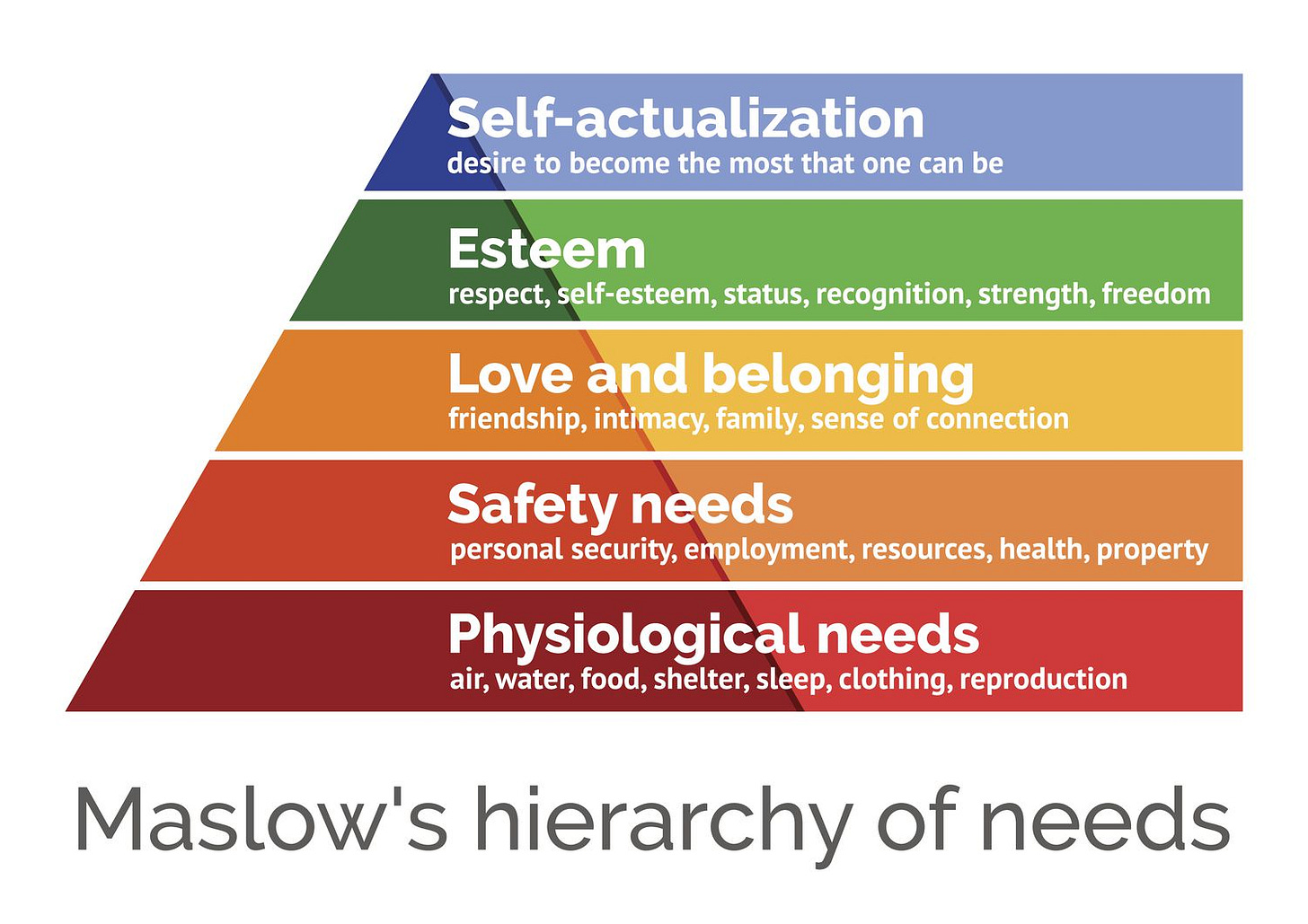







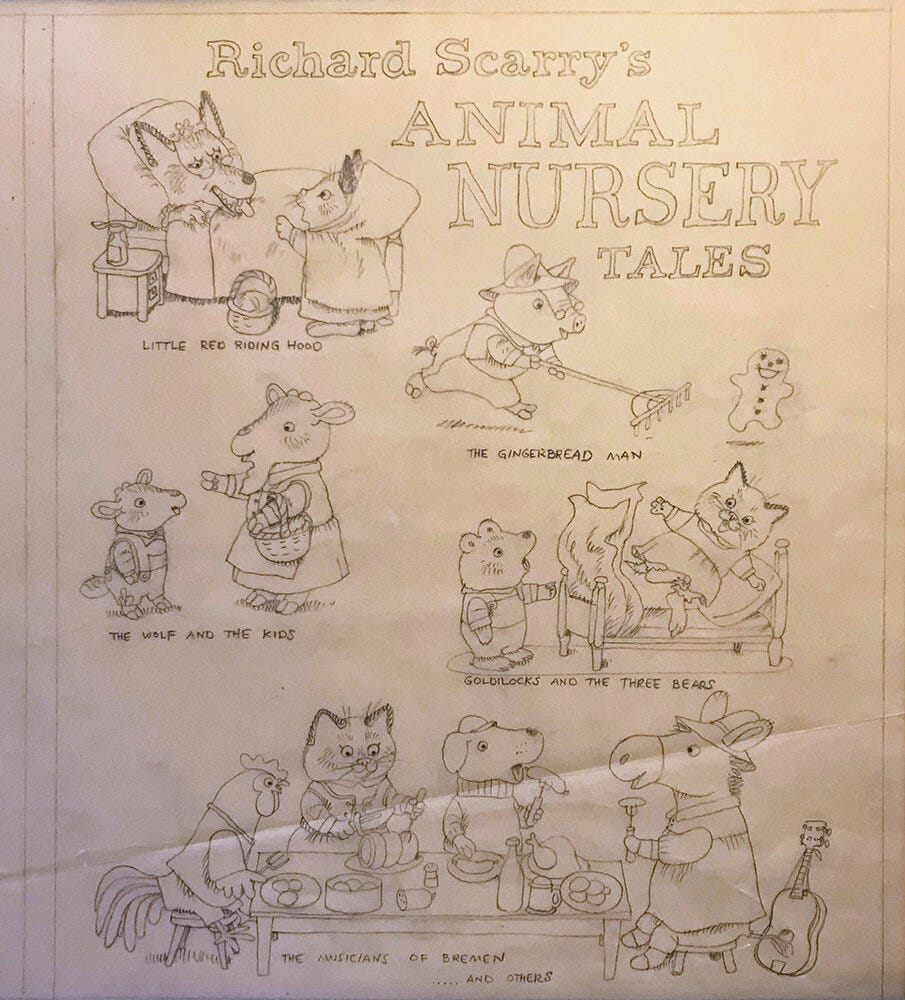

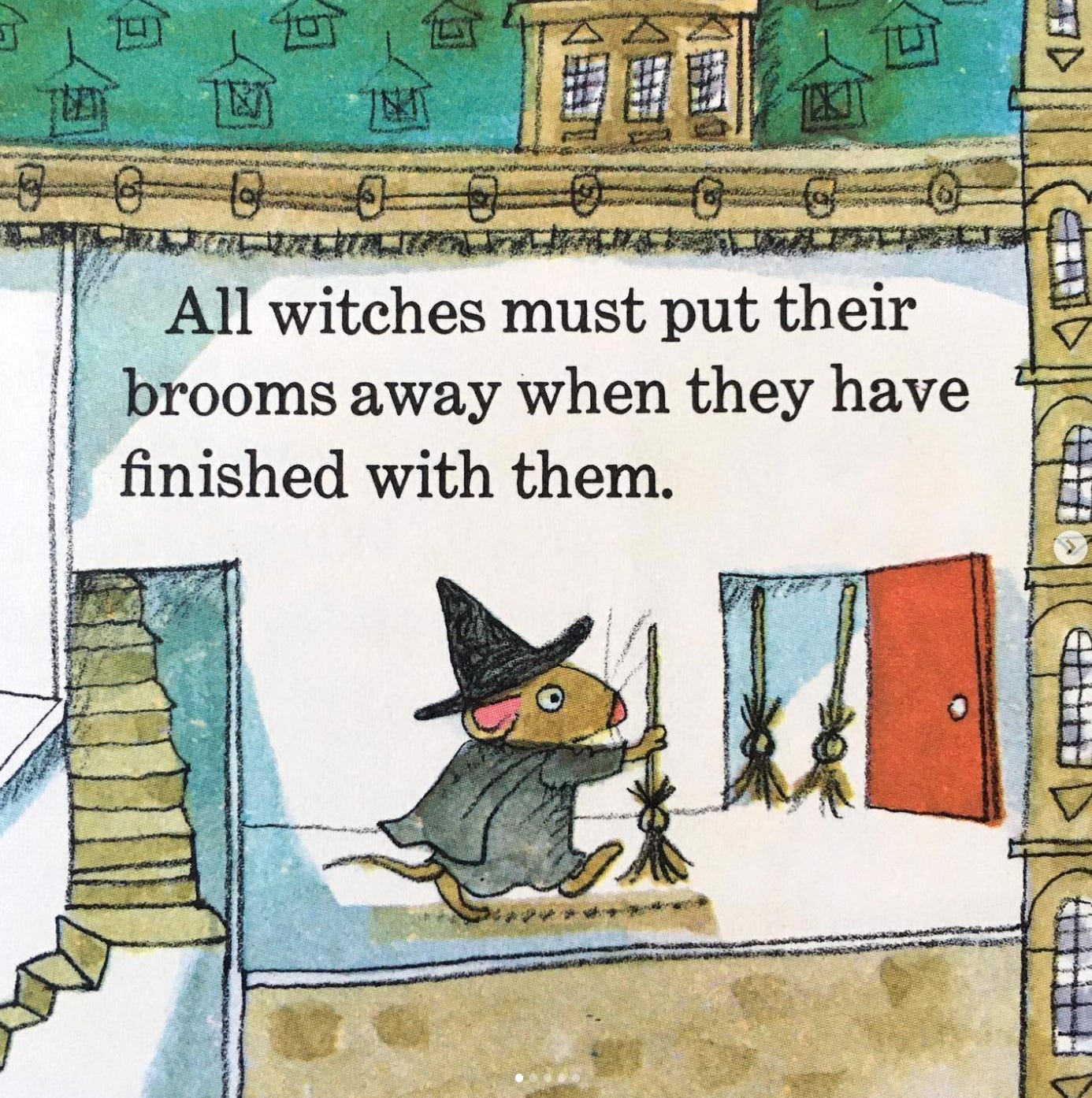




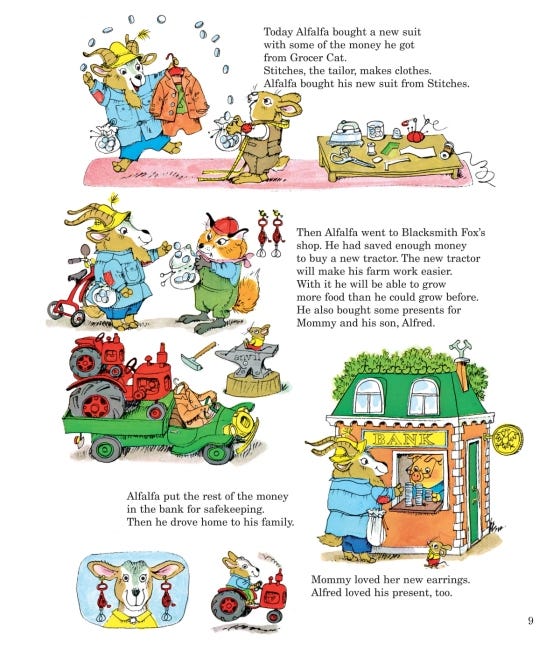


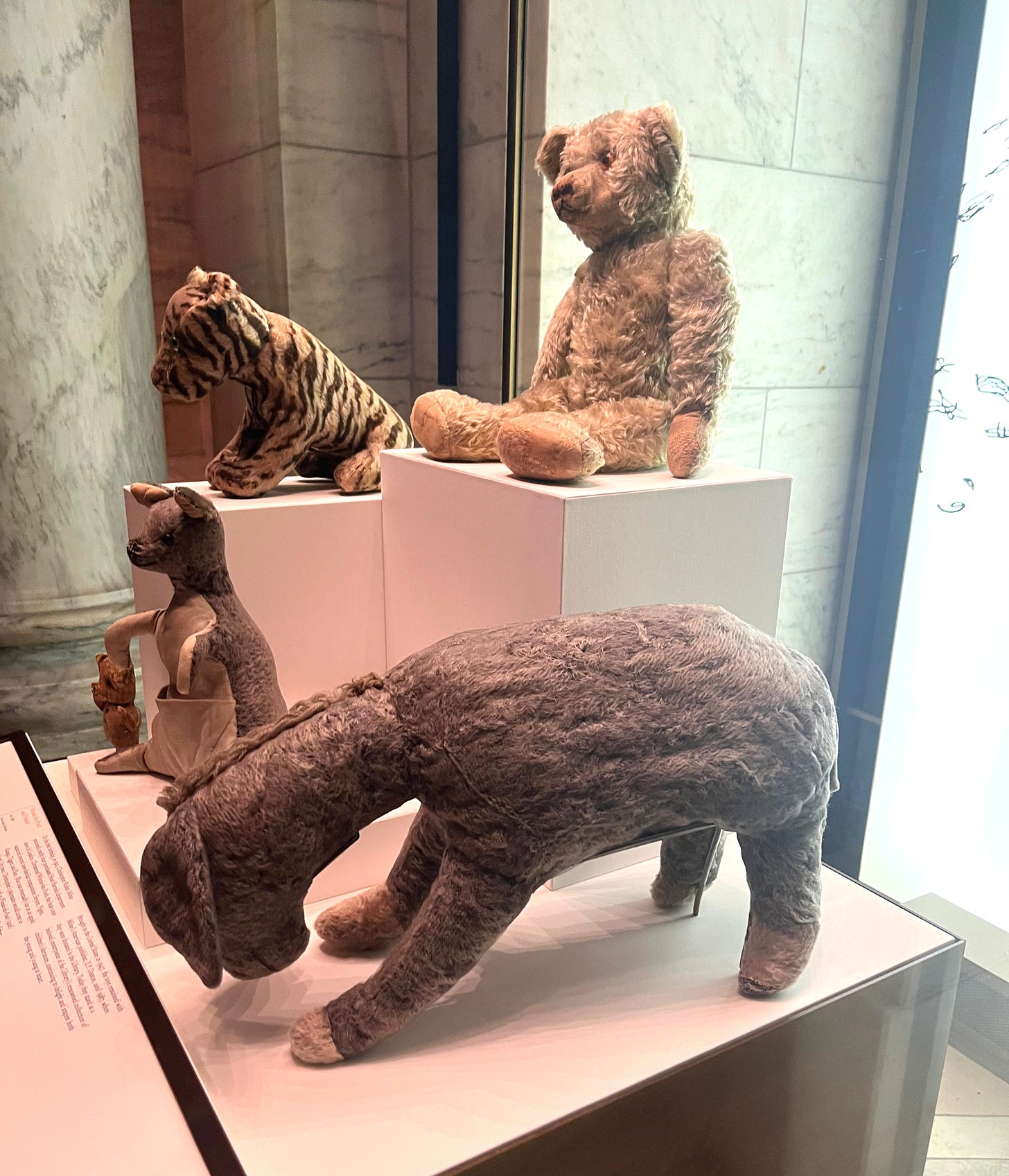


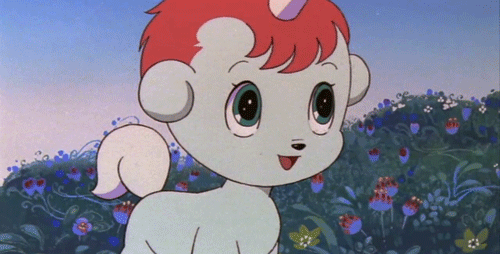




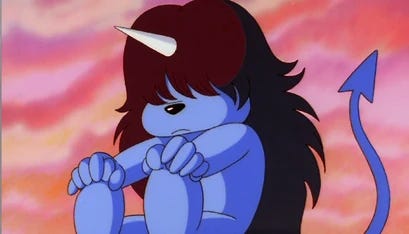
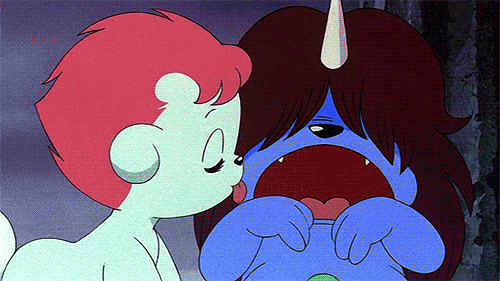


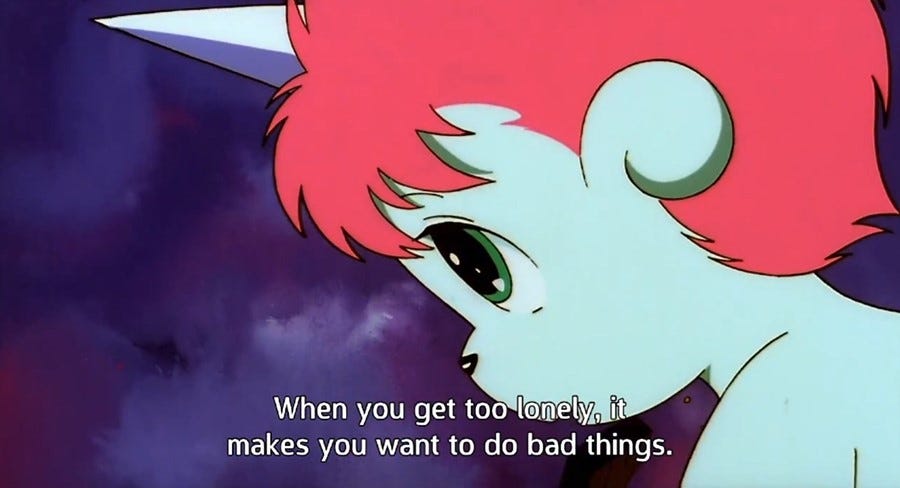


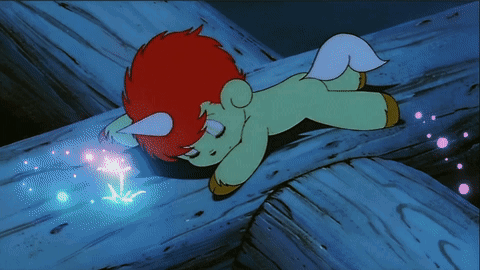


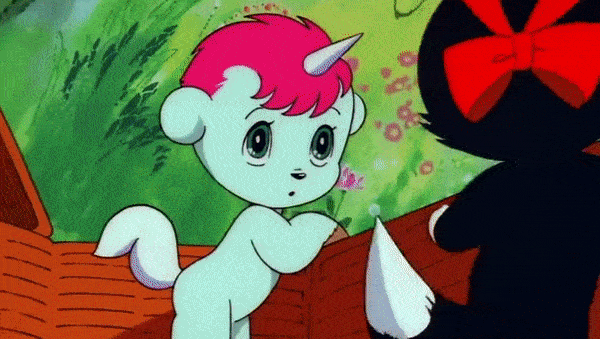
Beautiful! I love the Sylvainan creatures and I love the notes on loneliness. With the loneliness epidemic that psychologists talk about today in our culture, I think it’s so important to return to a sense of oneness with god- spirit. Loneliness is a ubiquitous emotion, but luckily so is love and love can always be found. I like to think of it like this - considering duality ☯️, loneliness/ separation is the shadow of love.
It's spooky how your writing mirrors my heart <3 (not in a creepy way...)
I have a vague, fuzzy memory of reading a Richard Scarry book, but not knowing the title or author's name, but having such warm thoughts. It took a herculean effort years ago to draw those memories out and find the book again. And if I had been exposed to Sylvanian families or Unico I'm sure I would feel the same about those worlds. Winnie the Pooh has also always held a special place in my heart - I recently found "Winnie the Pooh and the blustery day" on vinyl record and listening to the softly crackling story on a blustery Windsday, coffee in hand, is peak comfort :)
I have always felt that cuteness can help us broach the deepest, most difficult concepts in the most meaningful and accessible of ways... there are certain books, shows, and movies that I find myself gravitate to time and again for comfort and expression, and episodes of Summer Camp Island have entered into that rotation. I feel so lucky to have experienced your work and to get to continue doing so through your substack posts, they momentarily transport me to the tip of the pyramid!